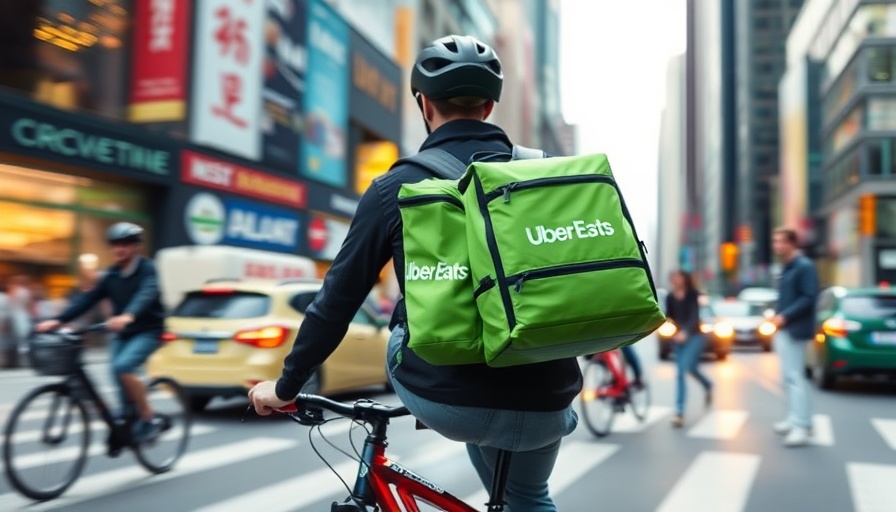
Uber Eats Revolutionizes Live Events in South Africa
Uber Eats is making waves in South Africa with its newest feature, "Live," allowing users to order food and drinks directly from their seats during live events. This innovative step could transform how South Africans experience concerts and sports games. No longer do attendees need to navigate crowded food stalls, missing crucial moments of their favorite events.
Bringing Food to the Fun
Attendees at venues like SunBet Arena in Pretoria, which recently hosted a Basketball Africa League game, can now simply open their Uber Eats app and select from a variety of food options available at the venue. This feature epitomizes convenience—delivering meals right where people enjoy live entertainment without any interruptions.
The Growth of Food Delivery in South Africa
South Africa's online food delivery market has seen a huge surge, with spending estimated at $3.3 billion in 2024. This figure is expected to nearly double by 2030, highlighting a growing trend in the demand for accessible food solutions at events. Uber Eats is tapping into this trend effectively, positioning itself in a market that is on the verge of explosive growth. The statistics speak volumes: by providing tech-enabled solutions like Uber Eats Live, the platform is supporting thousands of jobs and contributing significantly to the local economy.
A Commitment to Local Culture
"We’re proud to introduce a product that meets South Africans exactly where they are – at the heart of culture, community, and celebration," stated Cassie Jaganyi, Head of Communications for Uber Sub-Saharan Africa. This bold vision aligns with the global shift towards enhancing experiences through tech while fostering community connections. By embedding itself in local cultural events, Uber Eats is not just a service; it's becoming part of the narrative of South Africa's entertainment sector.
Looking Forward: The Future of Event Experiences
As South African entertainment venues host more major events, the potential for Uber Eats to innovate further is vast. From stadiums to concert halls, the focus on seamless customer experiences drives the need for solutions that ease access to food and drinks. This trend highlights an important reality: convenience is rapidly becoming a value that consumers expect at every level of engagement.
 Add Row
Add Row  Add
Add 


Write A Comment